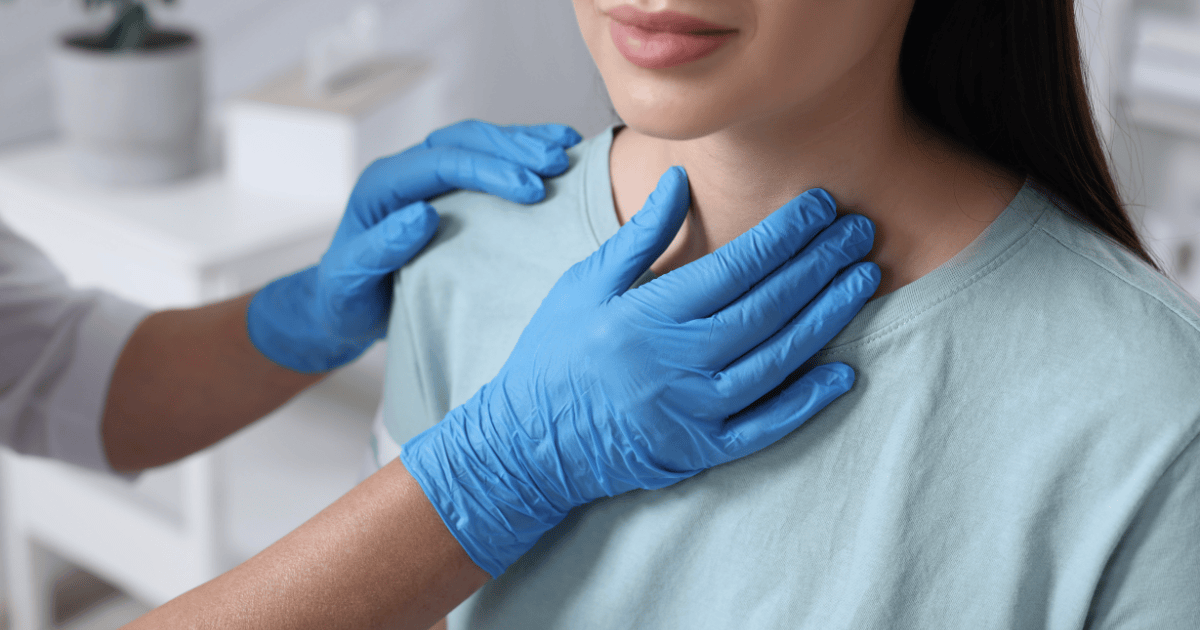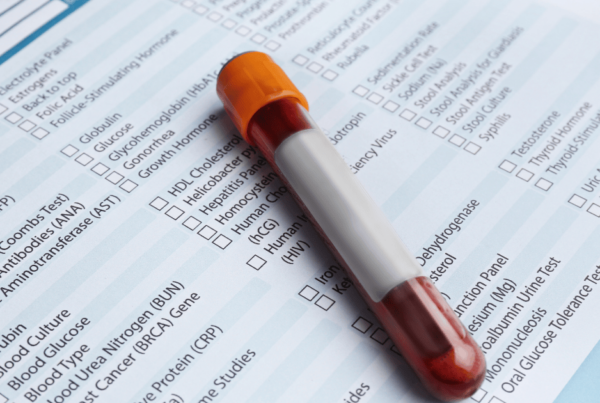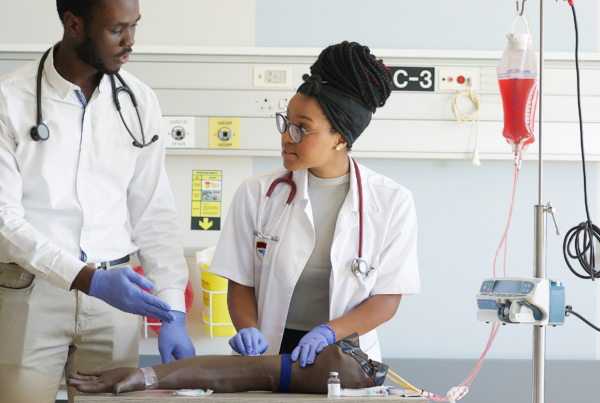The phlebotomy test for thyroid is a critical diagnostic tool used to evaluate thyroid gland function and identify conditions like hypothyroidism, hyperthyroidism, Graves’ disease, Hashimoto’s disease, and even thyroid cancer. At Phlebotomy Now School, we understand the importance of equipping future healthcare professionals with the knowledge and skills needed to perform these tests accurately. This guide delves into the various types of thyroid tests, preparation protocols, and their significance in modern medicine.
| Key Takeaways: Phlebotomy tests for thyroid |
| Phlebotomy tests for thyroid are crucial for diagnosing and managing thyroid disorders. |
| Understanding the different sorts of tests and how to prepare can help enhance the accuracy of the findings. |
| Early diagnosis through phlebotomy can prevent complications and lead to effective management of thyroid conditions. |
| Consult healthcare professionals for tailored advice and treatment based on individual test results. |
Understanding the Thyroid and Its Role
The thyroid is a butterfly-shaped gland located in the neck, just above the sternum. It plays a pivotal role in regulating metabolic processes by producing hormones like T3 (triiodothyronine) and T4 (thyroxine). These hormones influence:
- Energy levels.
- Heart rate.
- Weight management.
- Mood and cognitive functions.
When the thyroid’s function deviates from the norm, it can cause significant health issues, making early detection through phlebotomy tests essential.
The thyroid collaborates with the pituitary gland, which generates thyroid-stimulating hormone (TSH). This complex interplay ensures that the body’s metabolic processes run smoothly. Disorders of the thyroid can stem from autoimmune reactions, iodine imbalances, or even genetic factors, underscoring the necessity of regular screening and accurate diagnostics.
Beyond its role in metabolism, the thyroid also interacts with other endocrine glands, influencing hormonal balance throughout the body. This interconnectivity means that thyroid dysfunction can have ripple effects, impacting systems like cardiovascular health, digestion, and even reproductive health.
Types of Thyroid Tests
1. Thyroid Blood Tests
Blood tests are the most common method for assessing thyroid function. Here are the key types:
TSH (Thyroid-Stimulating Hormone)
- Measures hormone produced by the pituitary gland.
- High levels may indicate hypothyroidism, while low levels suggest hyperthyroidism.
- This test is often the first step in thyroid evaluation, serving as a baseline for additional tests.
T3 (Triiodothyronine)
- Evaluates the active hormone influencing the body’s metabolic rate.
- Abnormal levels may indicate hyperthyroidism or thyroid inflammation.
- T3 tests can differentiate between overt and subclinical thyroid conditions.
T4 (Thyroxine)
- Measures the primary hormone produced by the thyroid.
- Free T4 levels provide insights into thyroid function without interference from proteins.
- Essential for monitoring thyroid replacement therapy and disease progression.
Thyroid Antibody Tests
- Detects autoimmune disorders such as Graves’ disease and Hashimoto’s disease.
- Look for antibodies such as TPO (thyroid peroxidase antibodies) and TGAb (thyroglobulin antibodies).
- Helps confirm diagnoses when symptoms overlap with other conditions.
2. Thyroid Imaging Tests
Imaging tests are used to assess the gland’s size, shape, and presence of abnormalities such as nodules or tumors.
Ultrasound
- Uses sound waves to generate detailed pictures of the thyroid.
- Helps detect lumps or cysts and assess their nature (benign or malignant).
- A non-invasive, cost-effective method for initial evaluations.
Thyroid Uptake and Scan
- Involves ingesting or injecting radioactive iodine to evaluate the gland’s iodine absorption.
- Useful for diagnosing conditions like hyperthyroidism and identifying thyroid nodules.
- Provides a functional assessment alongside structural imaging.
CT Scans
- Offers cross-sectional images to identify structural abnormalities.
- Often performed with contrast material for better visualization.
- Recommended in complex cases where detailed imaging is necessary.
MRI (Magnetic Resonance Imaging)
- Provides high-resolution images of the thyroid and surrounding tissues.
- Useful for detecting tumors or assessing structural abnormalities without radiation exposure.
How Phlebotomy Tests Work
Preparation for a Thyroid Blood Test
Most thyroid blood tests require minimal preparation. Patients can:
- Eat and drink normally unless otherwise instructed.
- Inform the provider about medications or supplements that might affect results.
- Ensure they are well-hydrated to facilitate blood collection.
- Wear comfortable clothing for easier access to veins in the arm.
The Phlebotomy Procedure
- A healthcare worker cleanses the skin before inserting a sterile needle into a vein, usually in the arm.
- The sample is sent to a lab for analysis, where specific hormone and antibody levels are measured.
- Proper labeling and handling ensures that results are accurate and timely reported.
- Advanced techniques, such as using butterfly needles, may be employed for patients with smaller or more delicate veins.
What Happens After the Test?
- Results are typically available within a few days.
- Providers interpret the results and discuss further diagnostic or treatment steps.
- Patients may be advised on lifestyle changes or medications based on their diagnosis.
- Follow-up appointments may be scheduled to monitor treatment efficacy or progression of thyroid conditions.
Imaging Test Preparation
For imaging tests involving contrast material, patients may need to:
- Fast for a few hours before the test.
- Avoid iodine-rich foods, such as kelp, in the days leading up to the procedure.
- Inform the provider about allergies to contrast materials or iodine.
- Follow specific instructions regarding the ingestion or injection of radioactive substances.
Imaging Procedure Insights
During an ultrasound, a gel is applied to the neck area to facilitate sound wave transmission. For radioactive iodine uptake tests, patients are monitored in intervals to track iodine absorption over time. Each imaging test is tailored to provide comprehensive insights into the thyroid’s structure and function.
Interpreting Thyroid Test Results
Thyroid test results can reveal the following:
High TSH Levels
- Indicates hypothyroidism, where the thyroid is underactive.
- Symptoms: Fatigue, weight gain, and depression.
- May require hormone replacement therapy.
- Common in conditions like Hashimoto’s disease.
Low TSH Levels
- Suggests hyperthyroidism, where the thyroid is overactive.
- Symptoms: Rapid heartbeat, anxiety, and unexplained weight loss.
- Radioactive iodine or antithyroid drugs are possible forms of treatment.
- Often linked to conditions like Graves’ disease.
Abnormal T3 and T4 Levels
- May indicate thyroiditis or hormone imbalances.
- High levels are often linked to hyperthyroidism, while low levels point to hypothyroidism.
- Providers may recommend additional tests to confirm the underlying cause.
- Abnormal levels may also signal the presence of thyroid nodules or tumors.
Presence of Antibodies
- Confirms autoimmune disorders like Hashimoto’s or Graves’ disease.
- Indicates the need for long-term monitoring and management.
- May necessitate specialized treatments targeting immune response.
The Importance of Accurate Testing in Phlebotomy
Accurate phlebotomy techniques are crucial for reliable thyroid test results. At Phlebotomy Now School, we emphasize:
- Proper sample collection to prevent contamination or hemolysis.
- Adherence to protocols for handling and transporting specimens.
- Understanding test indications to guide patient care effectively.
- Patient-centered care to ensure comfort and trust during the procedure.
Our comprehensive training ensures that students are prepared to handle these tests with precision and professionalism, instilling confidence in both the healthcare provider and the patient.
Additionally, students learn the importance of communication skills to explain procedures to patients, reducing anxiety and ensuring cooperation.
Common Questions About Thyroid Tests
Is Fasting Required Before a Thyroid Test?
Generally, fasting is not required for blood tests but may be necessary for imaging tests with contrast material. Providers will offer clear instructions based on the specific test being conducted.
How Long Does a Thyroid Test Take?
- Blood tests: A few minutes.
- Imaging tests: 15 to 30 minutes, depending on the procedure.
- Additional time may be needed for post-test consultations.
- Radioactive iodine uptake tests may require multiple visits over 24 hours.
Can Medications Affect Thyroid Test Results?
Yes, certain medications and supplements can impact hormone levels. Always inform your healthcare provider about current treatments, including over-the-counter supplements or herbal remedies.
What Are the Risks of Thyroid Tests?
Thyroid tests are low-risk procedures. Blood tests may cause minor bruising, while imaging tests involving radioactive materials have minimal radiation exposure. Providers guarantee that hazards are reduced using suitable processes. Alternative contrast materials may be used for patients with allergies.
Conclusion
The phlebotomy test for thyroid is a cornerstone in diagnosing and managing thyroid-related conditions. Whether you’re a student, healthcare provider, or patient, understanding these tests is vital for effective diagnosis and treatment. Our goal at Phlebotomy Now School is to give aspiring professionals top-notch instruction and training. Come along with us and start down the path to a rewarding career in healthcare.
Enhancing Your Knowledge at Phlebotomy Now School
At Phlebotomy Now School, we prioritize hands-on training and theoretical knowledge to prepare our students for real-world scenarios. By mastering the phlebotomy test for thyroid, our graduates become skilled professionals ready to make a difference in patient care.
Why Choose Us?
- Experienced instructors with years of industry expertise.
- Comprehensive curriculum covering all aspects of phlebotomy.
- State-of-the-art facilities to ensure optimal learning.
- Supportive learning environment to foster student success.
- Emphasis on emerging trends in diagnostic testing and patient care.







